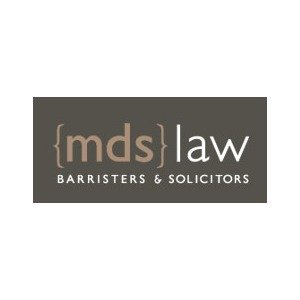Best Trademark Lawyers in Christchurch
Share your needs with us, get contacted by law firms.
Free. Takes 2 min.
List of the best lawyers in Christchurch, New Zealand
About Trademark Law in Christchurch, New Zealand
Trademark law in Christchurch, New Zealand, forms a part of Intellectual Property (IP) legislation and is governed primarily by the New Zealand Trade Marks Act 2002. This law protects marks, designs, symbols, brand names or logos that distinguish the goods and services of one party from those of others. Rights to trademarks can be obtained through registration with the Intellectual Property Office of New Zealand (IPONZ).
Why You May Need a Lawyer
Given the complexities of trademark law and the potential for costly mistakes, many individuals often benefit from the services of a skilled lawyer. You may need a lawyer to assist with trademark registration, advice on the selection of trademarks, conflict resolution in case of trademark disputes, trademark infringement issues or navigating international trademark processes.
Local Laws Overview
The key aspects of trademark law in Christchurch are covered under the Trade Marks Act 2002. This act states that for a trademark to gain registration, it must be capable of distinguishing your goods or services from another's. However, it also contains several prohibitions, such as not registering any mark that may mislead the public or be contrary to morality. Additionally, New Zealand follows a 'first-to-use' system, meaning that the first person who uses the trademark in relation to certain goods or services has the right to register it.
Frequently Asked Questions
What is the duration of a trademark in New Zealand?
A registered trademark in New Zealand lasts for ten years from the date of filing, but can be renewed indefinitely every ten years thereafter.
Can I register a trademark without using it?
Yes, use of the trademark is not required for registration in New Zealand. But if a trademark is not used for a continuous period of three years, it may be vulnerable to removal for non-use.
What kinds of trademark are registrable?
According to the Trade Marks Act 2002, marks, logos, words, colours, shapes, sounds, or smells that differentiate your goods or services from someone else's can be trademarked.
How long does it take to register a trademark?
It usually takes six to twelve months to register a trademark in New Zealand, contingent on no objections being raised during the process.
Can I oppose a trademark application?
Yes, any person can potentially oppose a trademark application, based on the grounds specified in the Trade Marks Act like an existing similar mark or lack of distinctiveness.
Additional Resources
The Intellectual Property Office of New Zealand (IPONZ) is the governmental body that oversees trademarks. They offer resources, guidelines, and online services to help with trademark registration and information. There are also several professional IP bodies and organizations such as the New Zealand Institute of Patent Attorneys (NZIPA) that can provide further assistance.
Next Steps
If you need legal assistance in trademark matters, consider hiring a specialised lawyer or an IP firm in Christchurch. Prepare your application and all necessary logo or brand materials. Contact IPONZ or IP professionals for guidance through the application process, preferably well before you plan to use your trademark to avoid any potential disputes.
Lawzana helps you find the best lawyers and law firms in Christchurch through a curated and pre-screened list of qualified legal professionals. Our platform offers rankings and detailed profiles of attorneys and law firms, allowing you to compare based on practice areas, including Trademark, experience, and client feedback.
Each profile includes a description of the firm's areas of practice, client reviews, team members and partners, year of establishment, spoken languages, office locations, contact information, social media presence, and any published articles or resources. Most firms on our platform speak English and are experienced in both local and international legal matters.
Get a quote from top-rated law firms in Christchurch, New Zealand — quickly, securely, and without unnecessary hassle.
Disclaimer:
The information provided on this page is for general informational purposes only and does not constitute legal advice. While we strive to ensure the accuracy and relevance of the content, legal information may change over time, and interpretations of the law can vary. You should always consult with a qualified legal professional for advice specific to your situation.
We disclaim all liability for actions taken or not taken based on the content of this page. If you believe any information is incorrect or outdated, please contact us, and we will review and update it where appropriate.









